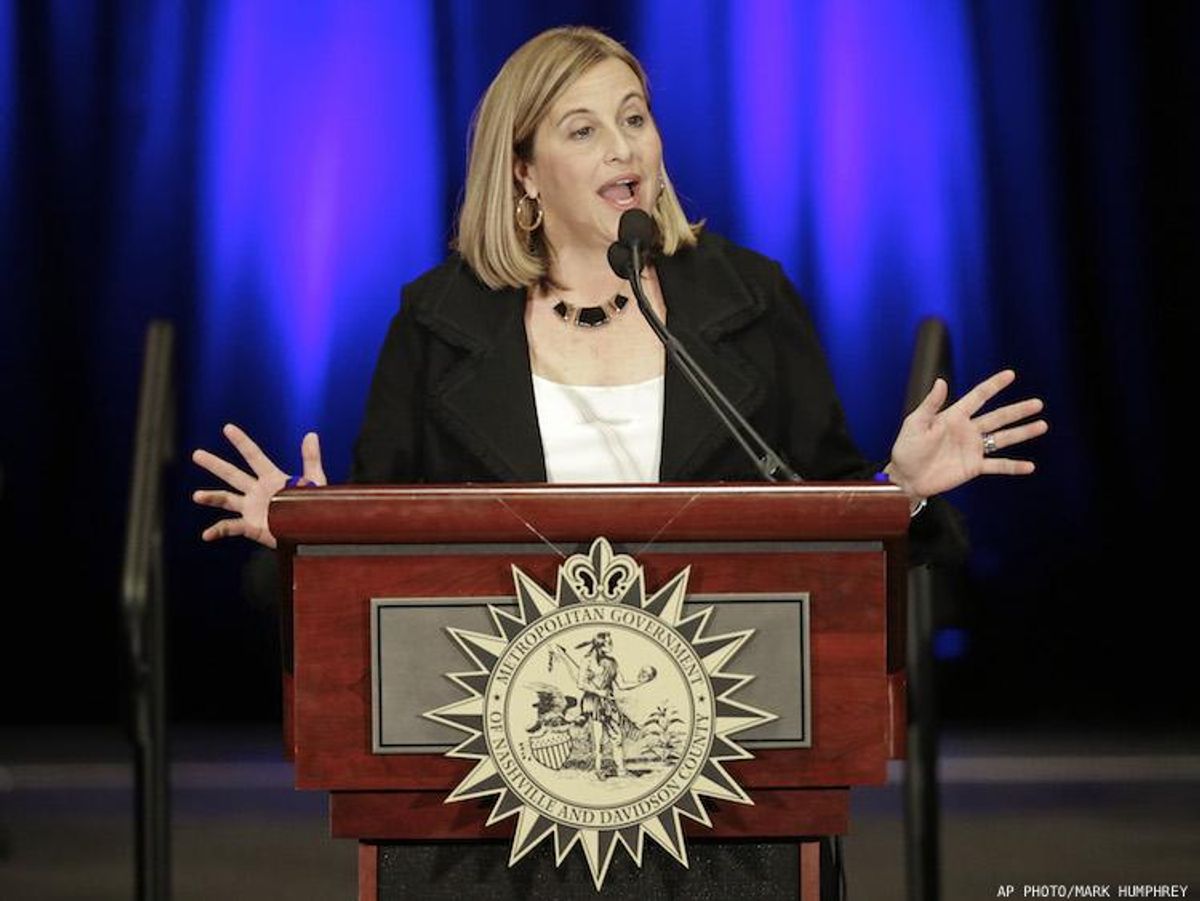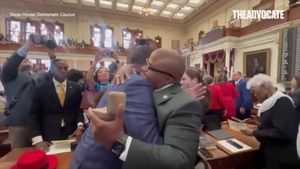Nashville's first female mayor is speaking out against pending legislation that would require transgender students statewide to use the bathroom and locker room that does not match their gender identity.
In addition to a bill awaiting the governor's signature that would allow mental health professionals to turn away LGBT clients, state lawmakers on Wednesday resurrected a transphobic "bathroom bill" that had been effectively killed by being sent to a summer session just weeks earlier.
Introduced in January by Republican Rep. Susan Lynn and Sen. Mike Bell, House Bill 2414 and its companion, Senate Bill 2387, aim to prohibit students at any public elementary, high school, or institution of higher education from using any bathroom or locker room that does not match the sex listed on the student's birth certificate. The bills mirror provisions of the controversial anti-LGBT laws recently passed in North Carolina and Mississippi, and are near carbon-copies of legislation vetoed by South Dakota's Republican governor last month after nationwide outcry.
Barry, a Democrat elected last September, addressed the spate of anti-LGBT bills in a statement Thursday.
"This legislation doesn't reflect Nashville's values and doesn't do anything to improve the quality of life for citizens of our city or state," Barry said. "If some lawmakers don't see the value in recognizing people's dignity and privacy, I hope they can at least see the negative economic impact and potential loss of revenue to Nashville and the State of Tennessee."
The 53-year-old mayor, who is married to Vanderbilt professor Bruce Barry, went on to highlight the economic consequences of such anti-LGBT legislation already being felt by North Carolina and Mississippi, which each passed similar laws targeting transgender people's restroom use. The mayor's statement continued:
"We've seen the negative effects that similar laws in North Carolina have had on their economy, and we've already received indications that conventions might pull out of Nashville or eliminate our city from consideration should HB2414/SB2387 become law -- resulting in a potential loss of over $10 million in state and local tax revenue and nearly $58 million in direct visitor spending removed from our economy.
"That is the loss of economic activity in just one sector of our city's economy. Our future ability to attract film and television production will also be impacted, and we could expect to see other industry sectors impacted, as well. That's quite a price to pay for legislation that would seem to hurt people -- including some of our youngest and our most vulnerable -- without actually benefitting anyone in the process. Instead of creating complex and confusing regulations for restrooms, or becoming the only state in the nation to allow discrimination by counseling professionals, the state should work with local governments to continue our economic growth, address traffic problems, and give our schools the resources and support they need to be successful."
Just last month, Barry spoke at the Human Rights Campaign Nashville's Equality Dinner, where bisexual pop singer Kesha was honored with the Visibility Award, marking her first public appearance since a judge in February denied her request to be released from her contract with Sony and producer Lukasz "Dr. Luke" Gottwald, who Kesha alleges drugged and raped her.
In addition to putting convention and tourism dollars at risk, the Tennessee bill targeting transgender students could put the state at risk of losing federal funding, as well. If passed, the bill would require staff and faculty at public K-12 schools, colleges, and universities to bar transgender students from using the restroom that corresponds with their gender identity, in direct opposition to current interpretations of federal protections guaranteed to transgender students under Title IX of the Education Amendments of 1972. The federal Department of Education and the Department of Justice have both stated that Title IX, which prohibits discrimination in education on the basis of sex, also prohibits discrimination on the basis of gender identity, or any student's failure to adhere to gender norms as defined by society.



















































































